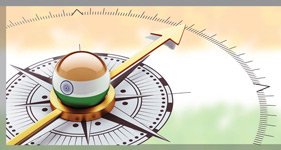The media, especially the ‘paid’ variety is ecstatic over the issue of Armed Forces Special Powers Act (AFSP) which comes up whenever civilian casualties are involved in counter-insurgency operations. The Union Home Minister has already made a detailed statement in Lok Sabha covering the incidents in Mon District of Nagaland on December 4 and 5. A Special Investigation Team has been constituted by the civil administration to look into these incidents while the Army has set up a Court of Inquiry headed by a Major General.
Post the recent violence in Nagaland, headlines like ‘Two North East Chief Ministers say AFSPA must go’ have emerged in the media. The news item says that the Nagaland Chief Minister Neiphiu Rio and Meghalaya Chief Minister Conrad Sangma have called for repealing the AFSPA. Rio and Sangma though part of NDA, are among the only three non-BJP Chief Ministers in the northeast, third one being Zoramthanga, Chief Minister of Mizoram.
It may be recalled that the Congress manifesto for Lok Sabha Elections in 2019 had stated: “The Armed Forces (Special Powers) Act and the Disturbed Areas Act in J&K will be reviewed. Suitable changes will be made in the text of the laws to balance the requirements of security and the protection of human rights.”
Responding to the Congress manifesto, the then Union Home Minister Rajnath Singh while addressing an election rally at Gautam Buddha Nagar on March 4, 2019 had stated that AFSPA can be withdrawn from J&K once normalcy is restored. He then said, “We have strengthened the hands of our soldiers with AFSPA in disturbed areas where extremists and terrorists run their activities. But Congress wants to weaken our soldiers and security forces. We will not let this happen.” Rajnath also said that the Centre had already withdrawn AFSPA in Tripura, parts of Arunachal Pradesh and Meghalaya.
However, Rajnath’s claim “we have strengthened the hands of our soldiers with AFSPA in disturbed areas” was more of a political statement to impress the ignorant public. AFSPA was not invoked in J&K by any political party. The Armed Forces (Jammu and Kashmir) Special Powers Act, 1990 was enacted in September, 1990 on the basis that if the Governor of Jammu and Kashmir (with concurrence of the Centre) or the Central Government, is of the opinion that the whole or any part of the State is in such a disturbed and dangerous condition that it should be declared ‘Disturbed Area’ and call for deployment of Armed Forces, then this Act can be imposed.
Declaration of ‘Disturbed Area’, if the Governor or Central Government, in its opinion, thinks there exists a dangerous situation in the said area which makes it necessary to deploy Armed Forces in the region to prevent: one, terrorist acts aimed at overthrowing the government, striking terror in the people, or affecting the harmony of different sections of the people, and; two, activities which disrupt the sovereignty of India, or cause insult to the national flag, anthem or India’s Constitution.
To put it simply, AFSPA comes into play ‘after’ a state or part of a state is declared “Disturbed Area” and the Armed Forces are called in. Most importantly, an area is declared a ‘Disturbed Area’ when the state administration has become defunct or cannot control the situation with police forces.
The significant fact unknown to the public is that the AFSPA was not drafted by the Armed Forces, either for Northeastern States or for J&K. AFSPA was enacted for J&K and northeast after due deliberations and debate in Parliament by the executive.
Yet, time and again, it is the Armed Forces, particularly the Army, who are under fire with respect to AFSPA. The Army certainly doesn’t enjoy being used against its own citizens but any dilution of AFSPA will imply reducing the Army’s effectiveness to that of the police. Ironically, the judiciary too keeps raising the issue of AFSPA rather than asking the government why a particular region continues to be classified as a “Disturbed Area”.
Continued classification of a region or area as ‘disturbed’ must be questioned and the state administration needs to be put under the knife, not physically but for the lack of administration. Take away the ‘Disturbed Area’ tag and the problem of AFSPA will be resolved, with the Army reverting to its primary task of defending the borders. The state administrations can look after themselves with police forces, augmented by Central Armed Police Forces.
Rather than calling for the repeal of AFSPA, Neiphiu Rio and Conrad Sangma should discuss with the Union Government the repeal of classification “Disturbed Area” of their states. That would automatically repeal AFSPA since the Army will not be involved in counter-insurgency any more. They should be able to convince the Centre that they can manage the insurgency on their own (without the Army) even though the military junta in Myanmar is now in sync with China and there are reports that Myanmar army is using Indian insurgents to their advantage.
Similarly, the Union Government should take into account that making part areas free of AFSPA for political purposes is not much of a solution because insurgents can easily transit into areas free of AFSPA to escape counter-insurgency heat. Take the case in the Maoists belt where insurgents freely move to adjoining areas or to the neighbouring state when operations are launched.
Especially, in case of Nagaland, most of the Naga insurgents (less ones who signed a peace deal) are in Myanmar; in contact with and supported by China. Declaring parts of Nagaland “Not Disturbed” (to repeal AFSPA) could be dangerous and playing into China’s hands.
The interest and invisible hand of China and Pakistan behind those asking for repeal or even ‘dilution’ of AFSPA must be discerned, be it politicians, journalists, human rights groups or non-governmental organizations.
-The author is a veteran of Indian Army. Views expressed are personal.
The author is an Indian Army veteran. The views expressed are of the author and do not necessarily reflect the views of Raksha Anirveda














